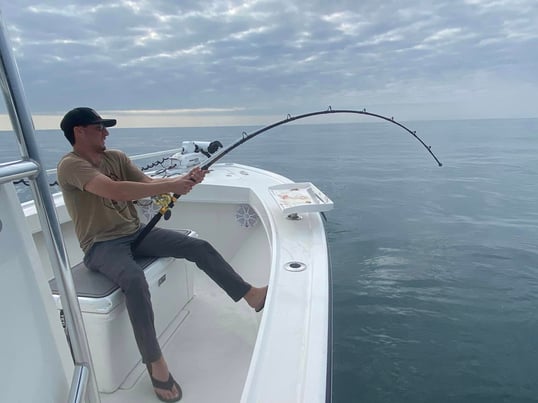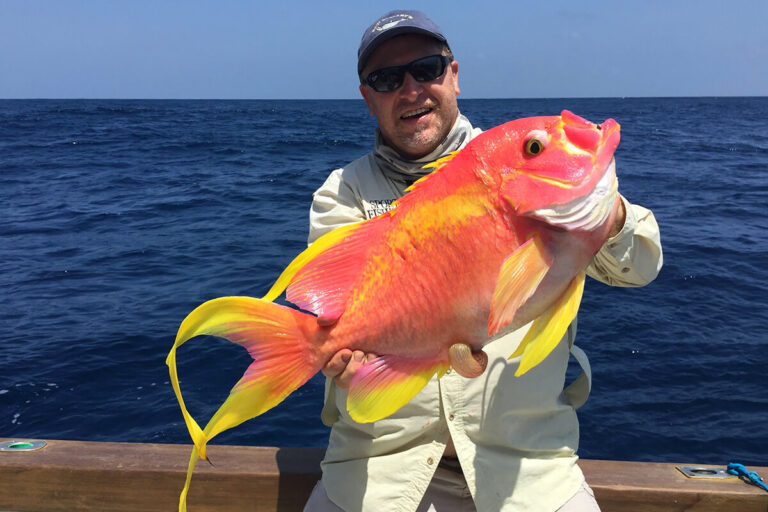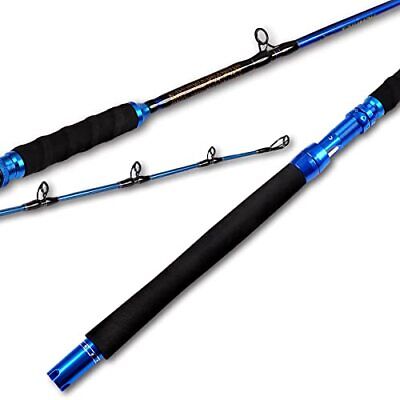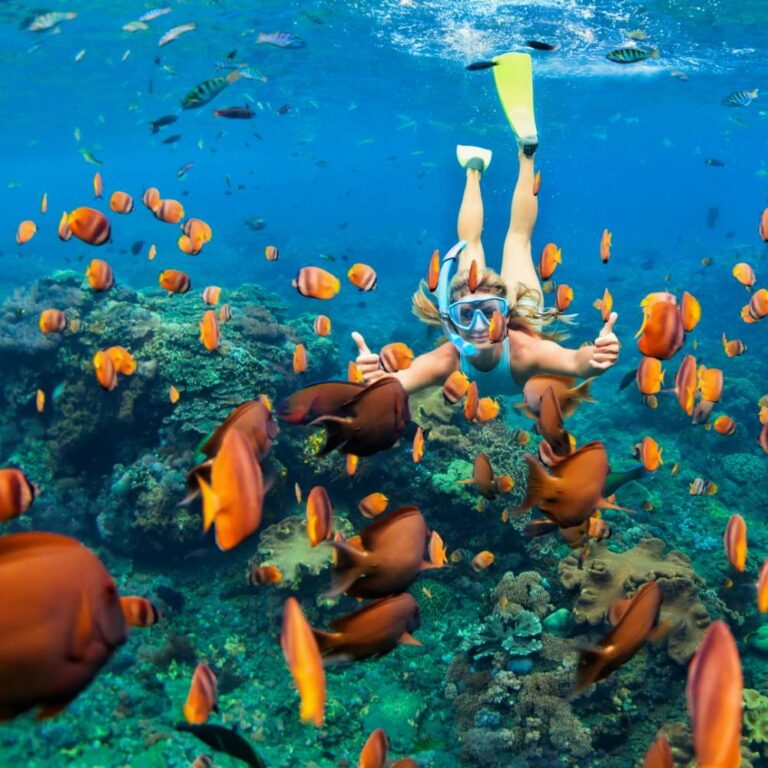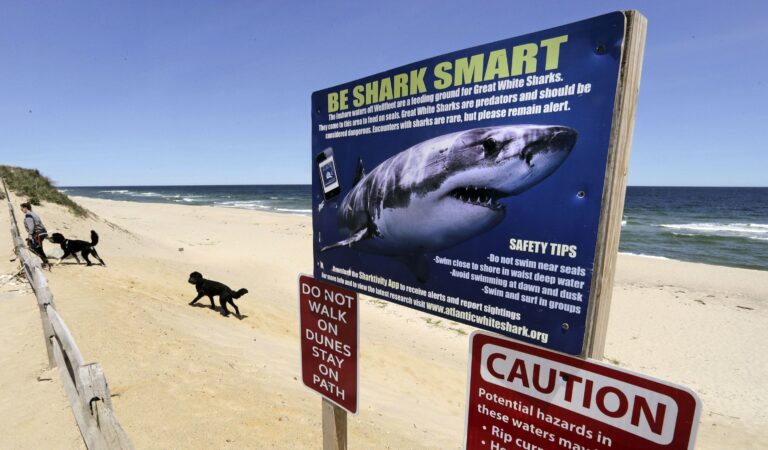Deep sea fishing tips include choosing the right gear and bait, knowing the weather and ocean conditions, and hiring an experienced captain. Fishing enthusiasts can enjoy chasing big fish in the open ocean with the right preparation and knowledge.
Fishing can provide a fun and thrilling experience for those who love spending time in the great outdoors. However, deep sea fishing requires a different approach than shallow water fishing, and there are some things that must be taken into consideration to ensure that the trip is both safe and successful.
Whether you’re an experienced angler or a novice, this article will provide some useful tips that will help you make the most of your deep sea fishing trip. Read on to learn more about how to choose the right gear and bait, understand weather and ocean conditions, and hire an experienced captain to guide you through your adventure on the high seas.
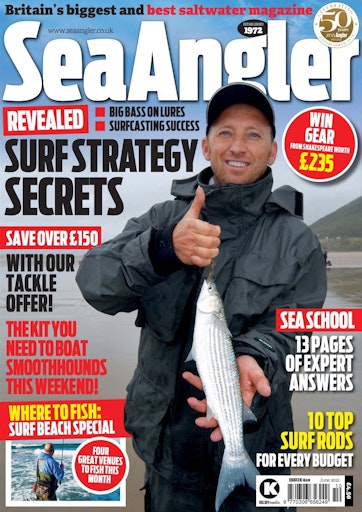
Credit: pocketmags.com
Pre-Trip Preparation
Deep sea fishing is an exhilarating experience that requires effective planning and preparation. Before setting sail, it is crucial to take the necessary steps to ensure a successful fishing trip. In this blog post, we will discuss pre-trip preparation tips that every angler should follow.
Research The Fish Species In The Area
Knowing the fish species that are available in the area you plan to fish is essential for a successful fishing trip. Apart from identifying your target species, researching their characteristics and habits will help you in choosing the right fishing gear and techniques to use.
You can also check with local fishing charters or bait shops for information on the most abundant fish species in the area.
Check The Weather Forecast
Checking the weather forecast is a crucial step in pre-trip preparation. Weather conditions can significantly affect the fish’s feeding patterns and activity levels; hence, it is vital to plan your trip accordingly. Check for any severe weather warnings and monitor changes in the weather forecast until the day of your trip.
Consider rescheduling the trip if the weather conditions are unfavorable.
Choose The Right Fishing Gear
Choosing the right fishing gear is vital in deep sea fishing. Proper planning will help avoid leaving behind essential equipment. Before your fishing trip, ensure you have purchased, checked, and packed all your gear. Saltwater fishing gear includes:
- Rods and reels
- Fishing line
- Hooks, weights, and swivels
- Lures, baits, and teasers
- Fishing pliers and scissors
- A landing net
- A fish-keeping bag or container
- Polarized sunglasses and a hat
Pack Enough Food And Drinks
Deep sea fishing requires a lot of energy, and you need to stay hydrated and fueled throughout the trip. Pack enough food and drinks to sustain you throughout the day. Avoid packing food that produces strong odors that will attract sea birds or other fish that you do not intend to catch.
Safety Tips For Deep Sea Fishing
Deep sea fishing exposes you to different safety hazards that require careful attention. Follow these safety tips to ensure a safe and enjoyable fishing trip:
- Wear a life jacket at all times, especially if you are not a strong swimmer.
- Inform someone about your plan, location, and expected time of return.
- Bring a first aid kit, sunscreen, and insect repellent.
- Stay alert and aware of other boats and the weather.
- Listen and follow the captain’s instructions
Pre-trip preparation is vital for your safety and to increase your chances of catching fish. By researching fish species, checking the weather forecast, choosing the right fishing gear, and packing enough food and drinks, you are well on your way to a successful deep sea fishing trip.
Remember, always follow safety tips to avoid any accidents while out at sea. Happy fishing!
During The Fishing Trip
Deep sea fishing is an adventure like no other, but it’s not just about casting your line and waiting for the fish to bite. There are a few tips and tricks that can help make your fishing trip more successful.
Here are some important things to keep in mind during your deep sea fishing trip.
Observe Tides And Currents
Understanding the movement of the tides and currents is crucial for a successful deep sea fishing trip. Fish are often more active during specific times of the day, and tidal current patterns can play a significant role in their movement.
Here are some things to keep in mind:
- Fish are often more active during slack tides.
- Currents can help you locate areas where fish are feeding.
- Start fishing on the up current side and let your bait drift down the current.
Locate And Follow The Feeding Patterns Of The Fish
Locating feeding patterns is an excellent way to find and catch fish. You can use a fishfinder to help identify the location of fish, but there are other things to consider:
- Look for signs of feeding such as birds diving into the water.
- Predatory fish will often follow their prey, so look for schools of baitfish.
- Different species have different feeding patterns, so you will need to adjust your strategy accordingly.
Master The Art Of Baiting And Hooking
Baiting and hooking is a crucial aspect of deep sea fishing. Here are some tips to keep in mind:
- Use fresh bait as much as possible.
- Use a hook that is appropriate for the size of the bait you are using.
- Make sure the hook is sharp to increase your chances of a successful catch.
Use The Right Technique For Different Fish Species
Different fish species require different techniques for catching them. Here are some things to keep in mind:
- Troll for fast-moving species such as marlin, sailfish, and tuna.
- Drift fishing is a good technique for catching bottom-dwelling species such as snapper and grouper.
- Casting and retrieving is a popular technique for catching wahoo and kingfish.
Practice Patience And Persistence While Waiting For The Catch
Deep sea fishing requires a lot of patience and persistence. You may spend hours waiting for a catch, but these tips can help:
- Switch up your bait if you are not getting any bites.
- Move to a different location if there are no bites after an hour.
- Stay alert and ready for a bite at all times.
Deep sea fishing can be an exciting and rewarding experience, and with these tips in mind, you’re sure to have a successful trip. Remember to observe the tides and currents, locate feeding patterns, master baiting and hooking, use the right technique for different fish species, and practice patience and persistence while waiting for the catch.
Happy fishing!
Conclusion
After reading this guide, you now have a better understanding of deep sea fishing tips that can make your next trip a thrilling and successful one. Remember to do your research beforehand, make sure you have the necessary equipment, and pay attention to the weather conditions.
Don’t forget to keep safety in mind and stay aware of your surroundings. By following these tips, you can increase your chances of catching a big fish and having a fantastic day on the water. So, grab your gear, head out on the waves and enjoy the natural beauty of the ocean while putting your newly gained knowledge to the test.
Happy fishing!

